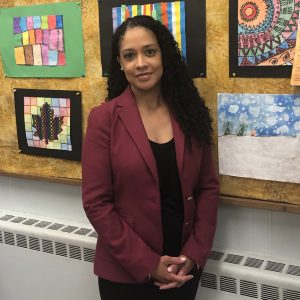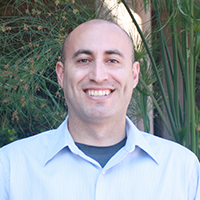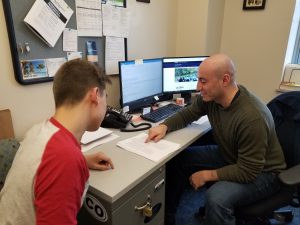Congratulations to our Neag School alumni, faculty, staff, and students on their continued accomplishments inside and outside the classroom, outlined in this month’s issue of Neag School Accolades.
Our Students
Student-Professional Feature: Sarhanna Smith
UCAPP Student Project on Community School Engagement
Current UCAPP student, Carly Paine has created a project to build her school’s capacity by leveraging the parent community based on their knowledge, experiences and skills, in support of the school’s curricular goals.
https://vimeo.com/319382580
Keep up the great work, Carly!
Courses and Curriculum: EDLR 5015
UConn’s Department of Educational Leadership (EDLR) offers a rich and diverse curriculum that prepares both undergraduate and graduate students to be educational leaders in our ever-changing world. The “Courses and Curriculum” series highlights innovative courses within EDLR’s catalog that are changing the education game for the better.
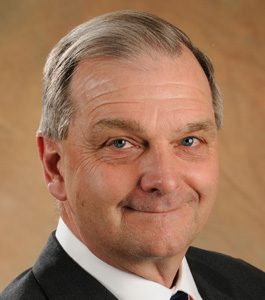
In EDLR 5015: Teacher Leadership and Organizations, finding your voice is the name of the game. The course, which is designed to prepare future teachers to become effective leaders within their schools, has been taught by a host of talented professors over the year, each of whom brings their unique skills to the curriculum. In recent years, Dr. Richard Schwab–Professor in the Department of Educational Leadership (EDLR), former Dean of the Neag School of Education, and UConn alumnus–has brought his extensive background in teacher education to the course and it has taken off.
The course is made up of many innovative components, including guest speakers from a range of professional areas who come to share their expertise. Recent speakers have included Dr. Alan Addley, Superintendent of Granby Public Schools and Connecticut’s Superintendent of the Year in 2019, and Alicia Bowman, who was named National Distinguished Principal of the Year by the National Association of Elementary School Principals in 2015– both are Neag alumni. “One of my favorite parts of this course was getting to learn from so many leaders from across Connecticut,” says Emily Cipriano, an EDLR alumna who credits a class visit by Nate Quesnel, Superintendent of East Hartford Public Schools, with finding her “dream job” teaching in the East Hartford school system herself.
The course also emphasizes leadership in the area of Family School Community Engagement (FCSE). “We talk about valuing all families: rich or poor, from all sorts of home life situations. All families want and are entitled to a meaningful education for their children,” says Schwab.
One course component in particular has garnered a lot of attention recently– including at the national level. As part of Schwab’s contract-based grading system, students are given the option of completing one of several projects in order to earn an A in the class. One of the possible projects is to complete an op-ed on an educational topic of the student’s choosing.
“The goal is for students to understand their voice,” says Schwab. “If you’re going to be a teacher leader, you need to have the courage to say: this is what I believe in.”
While publication is not a requirement of the project, this year alone Schwab has seen four of his students publish their op-eds: Emily Cipriano, Taylor Hudak, Julia Pilarski, and Olivia Singer have each used their voices to publish op-eds on topics ranging from teacher certification to how to teach in times of violence and political upheaval. Cipriano’s piece even reached national ears: not long after it was published, she appeared on NPR’s All Things Considered along with Dr. Schwab to talk about the impact of school shootings on the teaching profession.
Beyond the excitement of publication, writing op-eds is an instructive process. “Writing about a topic that is both a passion of mine and a critical issue in education helped me develop a sense of teacher leadership,” says Julia Pilarski. For Taylor Hudak, who describes herself as “a very reluctant writer,” the op-ed project was doubly empowering: “I definitely see myself writing more op-eds in the future, which is something I would never have thought before taking this course.”
“I felt like my voice was being heard, like it could actually make a difference,” says Olivia Singer.
So how does one write an op-ed? “I say to my students: start with your heart,” says Schwab, who has published numerous op-eds himself. “Only write what you’re passionate about. And no one gets it right on the first try! Editing, learning to express yourself concisely– that’s all part of the learning process.” Most students start with around 3000 words and have to hone that down to around 650, explains Schwab. For this process he brings in Stefanie Dion Jones, Director of Communications for Neag, as an expert coach for the students. “She’s wonderful at showing students how to put themselves out there, how to work with feedback,” says Schwab.
“Some students come in thinking they don’t have anything to offer,” says Schwab. “I couldn’t disagree more: I think these students have a great deal to offer.” And the impact of the op-eds goes beyond individual development and can effect broader social change: “Legislators read these!” he says.
Dr. Schwab’s comprehensive and innovative approach to teacher education is integral to Neag’s mission to prepare the next generation of educators to be leaders in our ever-changing world.
Student-Professional Feature: Miguel Colón
Humans of HESA: Denée Jackson
For Denée Jackson (HESA ‘19), pursuing a master’s degree in higher education and student affairs was a natural choice. As an undergraduate student at UConn, she was deeply involved in campus organizations such as the African American Cultural Center and her sorority. This involvement led her to first an internship and then, upon graduation, a staff position in the Office of Fraternity & Sorority Life. The opportunity to work with college-age students, says Jackson, is one she cherishes.
“Universities are where magic happens,” says Jackson. “Students are figuring out who they are, how they want to change their world, what they want to do with their little slice of the universe; it’s really cool to be a part of that.”
In the university setting and outside of it, Jackson is dedicated to pursuing equity and uplifting the most marginalized populations. One challenging aspect while she’s in school full-time is balancing her studies with her desire to do community organizing and other activist work. “I’ve had to put some of that on hold for now, at least outside of UConn,” says Jackson. “But I’m always trying to educate myself and stay up to date on social issues.”
One of Jackson’s most rewarding experiences as a HESA student was her practicum last fall with ScHOLA2RS House, which is a learning community for Black men on campus. The HESA practicum program gives HESA students the opportunity to gain experience with effective facilitation and the design of intentional learning environments. For Denée’s fall 2018 practicum she mentored a group of students in ScHOLA2RS House, connecting with them regularly to make sure they had the resources they needed. A highlight, says Jackson, was going with her students to the annual conference of the Congressional Black Caucus in Washington, D.C. She enjoyed the practicum so much that she’s stayed connected: for spring break this semester she will be joining ScHOLA2RS House for a study abroad week in Brazil.
Through Jackson’s successes as a student, life has not always been easy. Her mother, who she describes as her “biggest cheerleader and advocate,” passed away in November of 2018. “It’s going to be a challenge going into this next semester without her,” says Jackson. “But I have my brother and my dad, I have my friends.” The HESA community has been there for her, too. “Faculty, staff, my supervisors, my cohort,” she says. “They helped ground me and remember that there are bigger things beyond
grades, beyond HESA. They’ve been really supportive.”
Jackson’s current goal for her upcoming final semester (and beyond) is balance. “I’m working on looking at my life and my well-being holistically,” she says. “I’m trying to feed my soul on all levels. Cooking, going to the gym, doing yoga, meditating, travel: it can all seem like a stressor when I’m busy, but then when I do it, I find it helps so much. It becomes a pillar.”
As a HESA student, Jackson likes being able to design her experience to suit her goals. Many students move directly into their careers after completing a HESA master’s program, but Jackson is pursuing a different path: she plans to begin a doctoral program after graduation.
“There’s a path that’s sometimes considered to be ‘typical’ student affairs, but if your interests don’t align with that, it’s okay,” she says. “There are lots of ways to pursue what you’re interested in, and people will support you along the way.”
Neag School Accolades – December 2018-January 2019
Congratulations to our Neag School alumni, faculty, staff, and students on their continued accomplishments inside and outside the classroom, outlined in this month’s issue of Neag School Accolades.
Student-Professional Feature: Diana Kelley
In Higher Education, it is not uncommon for students to balance their studies with a full or part-time job. Many students enrolled in the programs of the University of Connecticut’s Department of Educational Leadership (EDLR) are not only students, but working professionals in the field. The “Student-Professionals” series highlights these hard-working student-professionals and how they balance their responsibilities. This feature focuses on a student-professional in the Ed.D. program.
For Diana Kelley, a student in the Department of Educational Leadership’s Ed.D. program, balance is key: in addition to her studies, she works as the Director of Special Education for Glastonbury Public Schools.
Kelley’s path in the field of special education began when she was a busy stay-at-home mother. As her children started to get a little older, she was ready to rejoin the workforce and decided to go back to school to become a paralegal. At the same time, she got a job as a special education paraprofessional. She found that she greatly enjoyed working with children in a professional setting and was particularly interested in special education. Education, she realized, might be the right career for her. As a result she stopped her paralegal studies and transferred to Central Connecticut State University (CCSU) to complete her teaching degree.
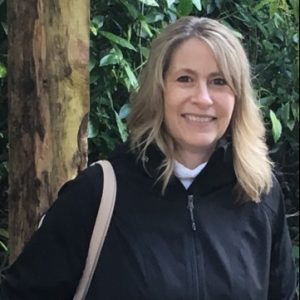
Managing the multiple and often competing demands of work, school, and family was a challenge as she completed her degree. “I would take my schoolwork to my kids’ sports games,” remembers Kelley. Upon successfully completing her bachelor’s degree, she started working as a special education teacher at Gideon Welles School in Glastonbury, CT. In that position, she also took on numerous building-level leadership roles, including serving as a team leader and serving on the Teacher Administration Liaison Committee. Her interest in leadership led her back to CCSU to complete a master’s degree and then to Sacred Heart University to earn an administrative certificate. When the opportunity arose, Kelley took a position as Special Education Supervisor at Glastonbury High School. When the Director of Special Education position for Glastonbury Public Schools opened up several years later, Kelley applied, and she has been in that role ever since.
For Kelley, the decision to pursue an Ed.D. was multifaceted. “I like being in school; learning about the most current practices and research is very helpful in my career,” she says, adding that earning a doctorate has always been a personal goal as well.
She chose UConn’s Ed.D. program for its proximity, affordability, and cohort model, which she says is very important to her. “The cohort is very supportive; it helps everyone stay connected and hold each other accountable,” she says. “And from a networking standpoint, it’s wonderful to get to know people and understand where they’re coming from.”
At this point in the program, Kelley’s research largely focuses on teachers’ beliefs and attitudes about students with disabilities, and she intends for her research to have real-world impact. “I want to find out things that will help guide me and my staff in terms of best practices to support students and teachers,” she says. “The growth mindset is important to me: believing that all students can learn.”
Being a student-professional can certainly be a challenge, says Kelley. Her job is demanding and she is sometimes exhausted by the time she gets home at the end of the day, which makes hitting the books for her program difficult.
While it can be difficult at times, Kelley says being a student-professional is also uniquely rewarding. “I like being able to relate what’s said in class back to my job,” she says. “It helps me keep my practice current and relevant, and it helps me provide useful professional development for my staff.” Plus, Kelley adds, the busyness of her schedule actually helps her appreciate the calmer moments. “Sometimes it makes me appreciate being in the moment more.”
“Balance and prioritization is key,” says Kelley. “My advice is to stick to a schedule and have some structure. I try to get my schoolwork done on weekends and one night a week. And it’s so important to carve out time for yourself: some time to go to the gym, whatever it might be. Sometimes I just take one night and say ‘I’m not going to not think about school or work tonight.’”
LLEP Student Discusses the Hidden Curriculum in Podcast
Shannon Holder, current LLEP Ph.D. candidate discusses The Hidden Curriculum in recent podcast in an effort to support fellow graduate students.
Memes and GIFs as Powerful Classroom Tools
LLEP Ph.D. candidate, Kristi Kaeppel co-authors article on using digital images in the classroom in the Faculty Focus.
